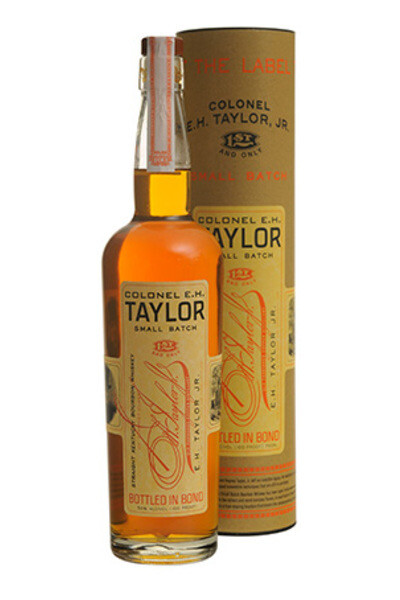COLONEL E.H TAYLOR SINGLE BARREL 750ML
COLONEL E.H TAYLOR SINGLE BARREL 750ML
ALLOCATION
As founding father of the bourbon industry, Colonel Edmund Haynes Taylor, Jr. left an indelible legacy. His dedication to distilling began at the close of the Civil War when he purchased O.F.C. Distillery. There, he developed innovative techniques that are still used in whiskey distilling today.
Made by hand, E.H. Taylor Small Batch Bourbon Whiskey has been aged inside century old warehouses constructed by E.H. Taylor, Jr. The barrels used for this American bourbon are evaluated and selected to create a perfect blend of distinctive character that is like no other. This Buffalo Trace Distillery bourbon is a true sipping bourbon that honors the uncompromising legacy of E.H. Taylor, Jr.
Colonel E.H. Taylor Jr. Small Batch Bourbon is made from a blend of seven-year old barrels hallowed from the sixth floor of a brick warehouse in Kentucky. Bottled in Bond at 100 proof, the bourbon has distinctive notes of oak and dried fruit. Notes of oak and dried fruit. The initially sweet flavors give way to hints of salted caramel, butterscotch and orange, which linger on the finish.
Each bottle of Colonel E.H. Taylor Jr. Small Batch Bourbon is packaged behind a vintage label and canister reminiscent of the bottles Taylor used over one hundred years ago.
E.H. Taylor, Jr. was a visionary in the whiskey world with a mind for distilling that was years ahead of its time. He founded a world class Distillery, made advancements to the industry, and fought for the purity and legitimacy of bourbon gaining him the title of the “Father of the Modern Bourbon Industry.”
Taylor is celebrated for the countless innovations he contributed to the bourbon industry in his time. His first involvement in the industry came as a banker, aiding in the organization and financing of several distilleries. Through his experience as a banker, Taylor became personally acquainted with several prominent whiskey makers. Taylor's 1869 purchase of a small Leestown distillery that he christened O.F.C. was his first foray into distilling, making an immediate mark on the industry by modernizing, expanding and upgrading the plant. Among his innovations were copper fermentation tanks, state-of-the-art grain equipment, column stills, modernized buildings, a more efficient sour mash technique and a first-of-its-kind steam heating system still used in the barrel warehouses today.

